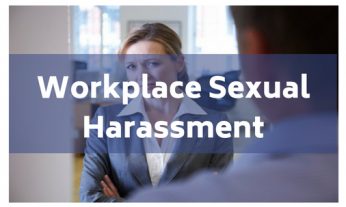 Workplace sexual harassment. When the vice-principal of one California middle school objected to her principal’s nickname for her (Double D), as well as his comments about the physique and desirability of colleagues, it did not go well for her. If you can relate to institutional sexism in your place of work, you may benefit from the advice of a local employment attorney.
Workplace sexual harassment. When the vice-principal of one California middle school objected to her principal’s nickname for her (Double D), as well as his comments about the physique and desirability of colleagues, it did not go well for her. If you can relate to institutional sexism in your place of work, you may benefit from the advice of a local employment attorney.
A History of Workplace Sexual Harassment Problems
Principal Pinto had a reputation as a misogynist who overtly disrespected female teachers and staff on a regular basis. The evidence of this lies in the 15 workplace sexual harassment grievances filed against him within one school year. Included in the complaints were these abhorrent incidents:
- He casually talked about female employees’ breasts;
- He stated that when one employee was making fish, the odor must have been coming from his vice-principal’s genitals.
Nonetheless, after the complaints were documented with the district, no protections were offered to the complainants. Instead, they faced additional hostility. When Pinto’s vice-principal either excused herself from meetings or broke into tears in reaction to his insults, Pinto’s response was to tell her that she had a choice – either “deal with it or resign.” She chose to deal with it.
The Workplace Sexual Harassment Lawsuit
Ultimately, a lawsuit was filed citing the following complaints:
- Sexual harassment;
- Hostile work environment;
- Retaliation.
Specifically, the suit alleges that Pinto held sexist opinions and that he believed women should acquiesce to the will of men. Only teachers and staff who were willing to embrace this subservient stance were able to avoid the wrath of Pinto. Others, who were particularly successful or assertive were targeted relentlessly. When Pinto became aware of the complaints against him by his vice-principal, he responded by assigning her less desirable duties and relieving her of responsibilities to lead professional development classes and to evaluate teachers. Another teacher who had experienced problems with the principal and complained also suffered retaliation. After preparing throughout the summer for a California Cadet Corps course, she found the class cancelled by Pinto on orientation day. Eventually, both women were forced to quit altogether.
Now, the district may be liable for punitive damages, compensatory damages, lost wages, lost benefits, emotional distress, and medical expenses associated with the experience.
Defining Workplace Sexual Harassment
Sexual harassment in the workplace is illegal. It may take the form of inappropriate verbal comments and jokes, leering or sexually suggestive gestures, pictures and cartoons, unwelcome physical contact, or the swapping of employment opportunities for sexual favors. When any of these behaviors are shunned or reported and the harasser becomes threatening or retaliates in any way, it is against the law. [Read more…]

